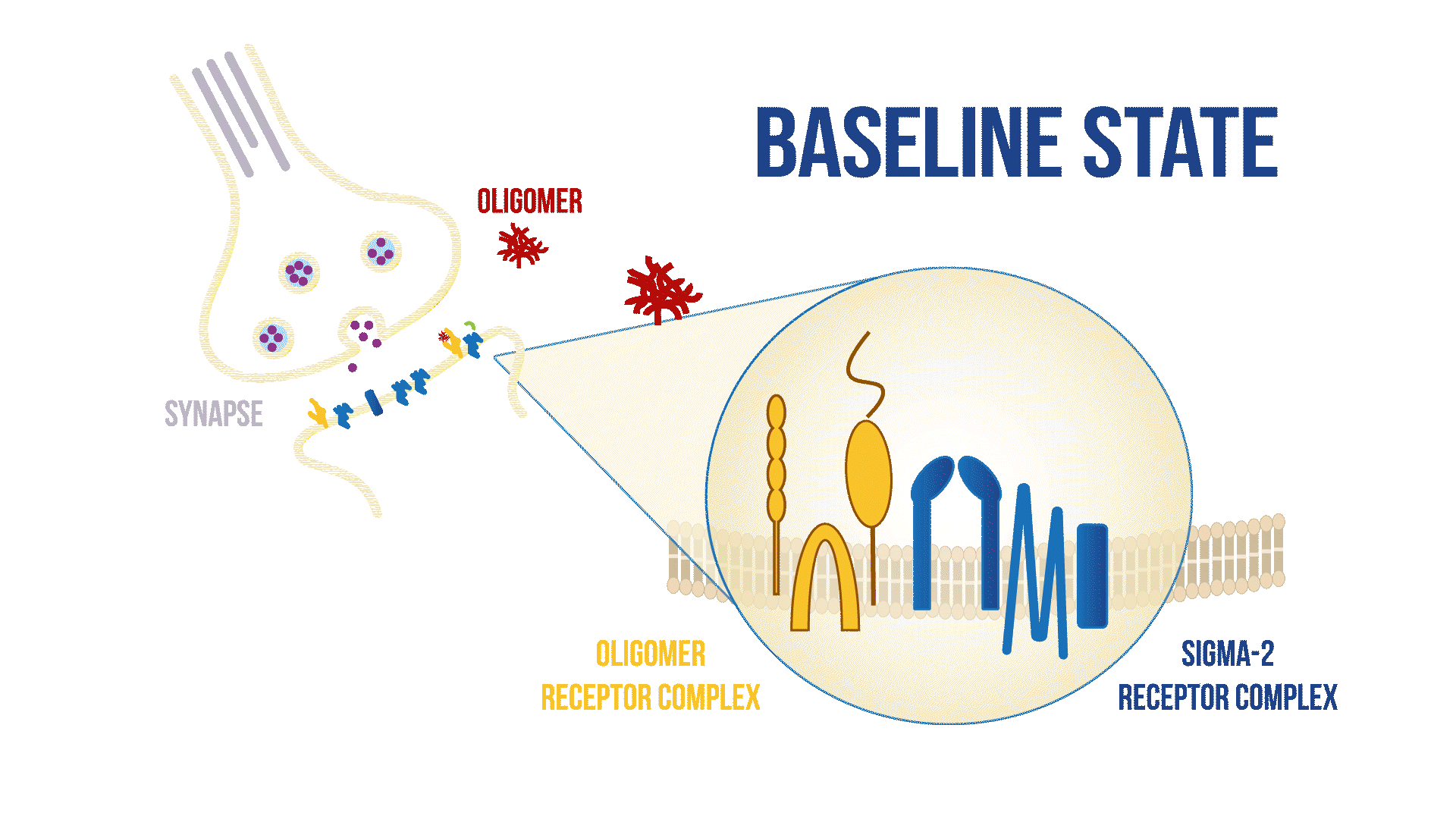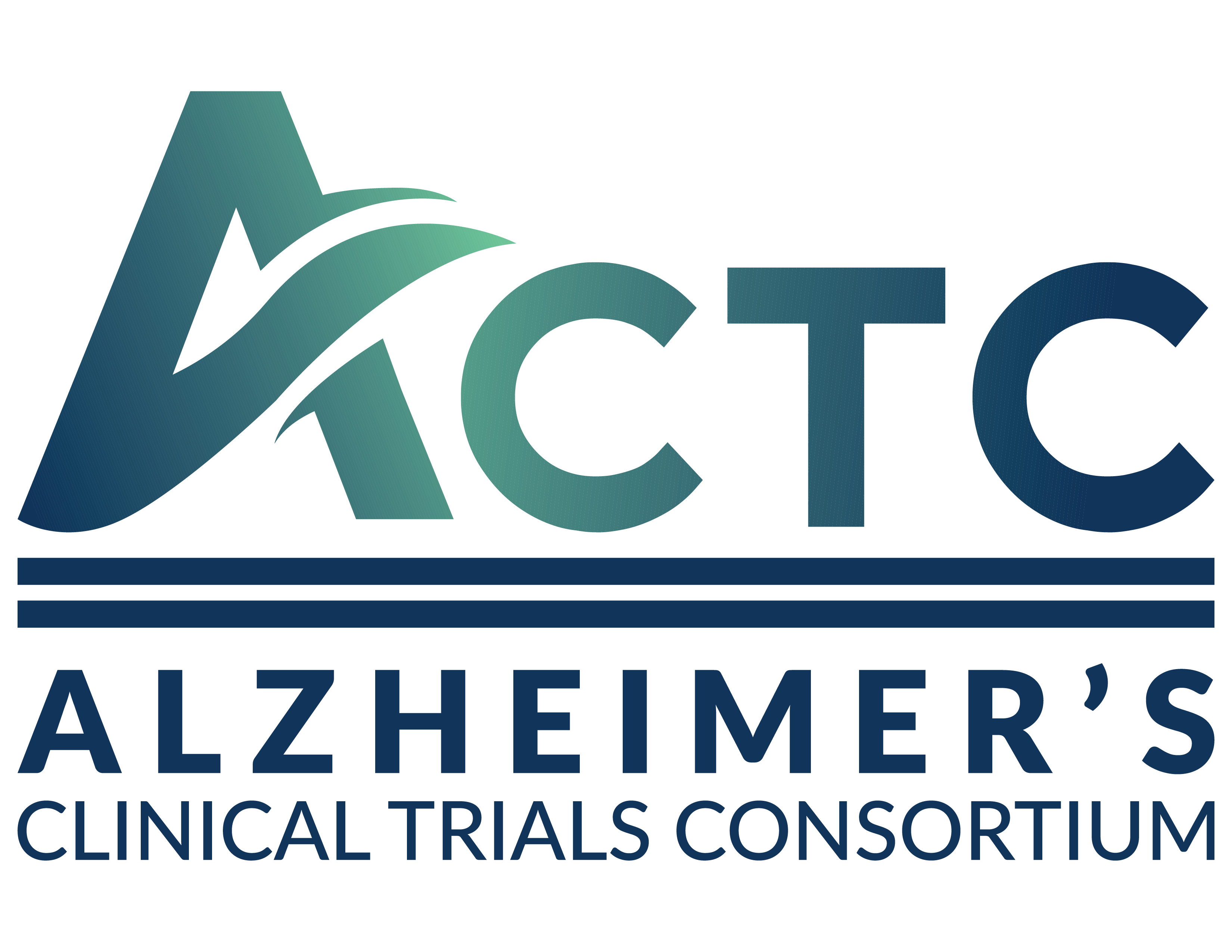ABOUT THE STUDY
The purpose of the START Study is to evaluate the safety, efficacy, and tolerability of CT1812 in early Alzheimer’s disease.
What to expect during the START Study
The START Study lasts about two years. Here is an outline of study visits that each participant will be asked to make.
Visit 1:
Screening Visit(s)
Medical staff at the study site will determine if each person qualifies for the study. This is done through several different medical tests and procedures. The screening process could take up to 4 visits, and from several weeks to three months to complete.
When a person qualifies for the study, he or she will be randomly assigned (or randomized) to a treatment group. The three possible treatment groups are: 100mg dose of CT1812, 200mg dose of CT1812, or placebo.
A placebo is a capsule that looks just like the study drug but does not contain the study drug or any other active ingredient. To ensure fairness, the person in the study, their study partner, and the study doctor will not know whether the participant is taking CT1812 or the placebo
VISIT 6-23
Treatment Period
The treatment period lasts about 18 months. During this time each participant will:
-
- Take the study drug or placebo capsule(s) once a day, as instructed by study site staff.
- Attend in-person visits for medical tests and procedures.
- Have a study partner who helps with giving the study drug to the participant and who can share information about the participant’s behavior and health to the study site staff.
- Take the study drug or placebo capsule(s) once a day, as instructed by study site staff.
VISIT 24
Follow-Up Phone Call
A final phone call four weeks after the participant takes the last dose of the study drug and the related study site visit.
PROCESS REVIEW DIAGRAM

About the study drug
The name of the study drug used in the START Study is CT1812, and it will be taken as two oral capsules, once a day. The placebo will also be taken as two oral capsules, once a day.
Previous smaller studies have shown that CT1812 might protect against memory loss related to Alzheimer’s disease. CT1812 is believed to work by protecting connections in the brain called synapses. Synapses are the points of communication between brain cells and are key to thinking and forming memories.
CT1812 works by binding to the sigma-2 receptor complex in the brain. When this occurs, it changes the shape of the neighboring receptor complex. It is these neighboring receptors where harmful proteins called oligomers attach and can build up over time. When the shape of the neighboring receptor complex changes, it displaces the attached oligomers and prevents the buildup that interferes with the communication between brain cells.
Oligomers are thought to damage because when they are bound to synapses, they can cause damaging changes inside the brain cell. By removing oligomers from the receptor surface, CT1812 potentially limits the damage they can do.
Unlike other Alzheimer’s drugs in late-stage development, such as aducanumab, lecanemab, donanemab, which are all amyloid-lowering drugs, CT1812 doesn’t seek to clear amyloid but simply to displace it. This means it could potentially work in combination with these other drugs to increase benefit.
find and contact a study location for more information.

Who is leading the START Study and who is funding it?
The START Study is funded by the National Institute on Aging (NIA) of the National Institutes of Health (NIH) and sponsored by Cognition Therapeutics. The study is being conducted by the NIH-funded Alzheimer’s Clinical Trial Consortium (ACTC), a network of leading academic Alzheimer’s research centers.
The study is led by Alzheimer’s disease research experts and academic leadership at the ACTC, Yale School of Medicine, and Cognition Therapeutics.
operation of the study is:
Christopher van Dyck, M.D.
Professor of Psychiatry, Neurology, and Neuroscience and Director of the Alzheimer’s Disease Research Unit at the Yale School of Medicine
Co-Chair for the Project Evaluation Committee (PEC) and a member of the Executive Committee for the ACTC


